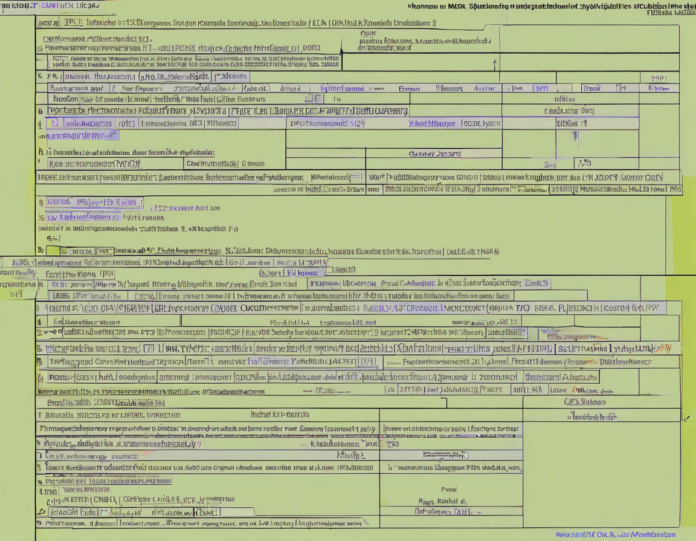Technical education plays a vital role in shaping the future of tomorrow’s workforce. In the state of Maharashtra, the Maharashtra State Board of Technical Education (MSBTE) has been at the forefront of offering quality technical education through its various diploma and certification courses. One of the essential components of technical education is the curriculum, which acts as the foundation for students to acquire the necessary knowledge and skills in their chosen field of study. In line with this, MSBTE has recently introduced the K Scheme syllabus, which aims to provide students with a modern and industry-relevant curriculum. In this blog post, we will delve into the latest MSBTE K Scheme syllabus to understand its key features, benefits, and implications for students pursuing technical education in Maharashtra.
Understanding the MSBTE K Scheme Syllabus
The K Scheme syllabus introduced by MSBTE represents a significant overhaul of the traditional curriculum, incorporating contemporary practices and industry trends to ensure that students are well-equipped to meet the demands of the ever-evolving job market. The K Scheme is designed to offer a more practical and hands-on learning experience to students, enabling them to develop not only theoretical knowledge but also essential skills that are highly valued by employers.
Key Features of the MSBTE K Scheme Syllabus
-
Industry-Relevant Curriculum: The K Scheme syllabus is aligned with the latest industry standards, ensuring that students are exposed to relevant and up-to-date content that is reflective of real-world practices.
-
Emphasis on Practical Learning: Unlike traditional theoretical-based curricula, the K Scheme places a strong emphasis on practical learning, with a focus on hands-on projects, workshops, and industry internships.
-
Skill Development: The K Scheme syllabus is designed to foster the development of practical skills such as problem-solving, critical thinking, communication, and teamwork, which are essential for success in the workplace.
-
Flexibility: The K Scheme offers flexibility in terms of course structure, allowing students to choose elective subjects based on their interests and career goals.
-
Assessment: The assessment methods under the K Scheme are diverse and may include practical demonstrations, projects, presentations, and industry interactions, in addition to traditional written exams.
Benefits of the MSBTE K Scheme Syllabus
-
Enhanced Employability: By equipping students with industry-relevant skills and knowledge, the K Scheme syllabus enhances their employability and job readiness, making them more attractive to potential employers.
-
Hands-On Experience: The emphasis on practical learning in the K Scheme allows students to gain valuable hands-on experience, which is crucial for applying theoretical concepts in real-world scenarios.
-
Industry Connect: Through industry internships and interactions, students under the K Scheme have the opportunity to network with industry professionals, gain insights into the latest trends, and secure job placements.
-
Personality Development: The K Scheme syllabus not only focuses on academic excellence but also on overall personality development, helping students build confidence, communication skills, and leadership qualities.
Implications for Students
For students pursuing technical education in Maharashtra, the introduction of the K Scheme syllabus represents a positive step towards ensuring that they are well-prepared for the challenges of the modern workplace. By embracing a more practical and industry-driven approach to learning, students can gain a competitive edge and stand out in the job market.
In conclusion, the MSBTE K Scheme syllabus reflects a forward-looking approach to technical education, aligning curriculum with industry requirements and fostering the holistic development of students. By embracing this new syllabus, students can not only enhance their technical knowledge but also acquire the skills and competencies needed to succeed in today’s fast-paced and dynamic work environment.
Frequently Asked Questions (FAQs) about the MSBTE K Scheme Syllabus
- What is the MSBTE K Scheme syllabus?
-
The K Scheme syllabus is the latest curriculum introduced by the Maharashtra State Board of Technical Education (MSBTE) for diploma and certification courses, emphasizing practical learning and industry relevance.
-
How is the K Scheme syllabus different from the previous curriculum?
-
The K Scheme syllabus differs from the previous curriculum in its focus on practical learning, industry alignment, and skill development, aiming to make students job-ready and enhance their employability.
-
What are the benefits of the K Scheme syllabus for students?
-
The benefits of the K Scheme syllabus include enhanced employability, hands-on experience, industry connect, and personality development, all of which are crucial for students entering the workforce.
-
Does the K Scheme syllabus offer flexibility to students?
-
Yes, the K Scheme syllabus offers flexibility in terms of elective subjects, allowing students to tailor their learning experience based on their interests and career goals.
-
How can students prepare for assessments under the K Scheme syllabus?
- Students can prepare for assessments under the K Scheme by actively participating in practical learning activities, staying updated with industry trends, and seeking guidance from faculty and industry mentors.
By addressing these FAQs, students can gain a better understanding of the MSBTE K Scheme syllabus and its implications for their technical education journey.








